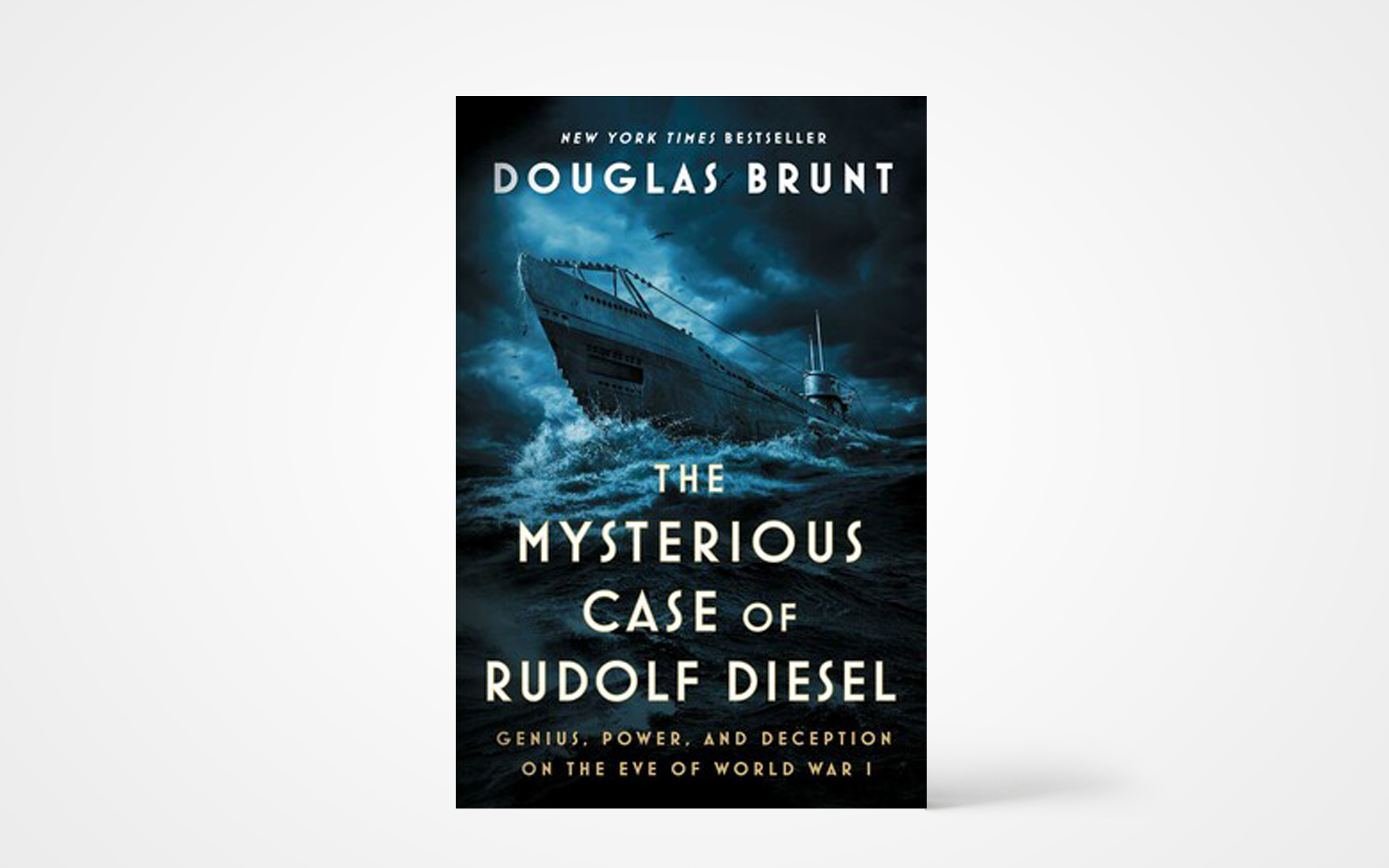The world political machine has many moving parts. Personal agendas, technological advances, the discovery of natural resources, and nationalistic oneupmanship start wars and end them. Sometimes significant people and moments get lost in the swirl of major events, rattling around in the depths like loose coins in a washing machine.
One such casualty of history (literally and figuratively) is Rudolf Diesel, inventor of the engine that carries his name and still dominates the transport industry. In his first nonfiction book, The Mysterious Case of Rudolf Diesel, Douglas Brunt explores the great inventor’s life and work. To do so, Brunt must also cover the convoluted events that led to the Great War in Europe, as well as the ruthless business dealings of the Progressive Era in the United States.
Few today realize how the development of the diesel engine threatened to topple empires, both nationally (in the case of Germany or Great Britain—whoever could harness it first) and commercially (in the case of Standard Oil). Through no personal ambition or animus, Rudolf attracted powerful enemies. So when, on the morning of Sept. 30, 1913, his hat and coat were discovered on the deck of a ship, and the man was nowhere to be found, it was assumed he had either killed himself or was murdered.
The first two-thirds of the book function as an engaging biography and world history, while also explaining how the engine works and its significance then and now. In the final section, Brunt makes a plausible case for what really happened that’s as thrilling as fiction. I’d love to see this dramatized in a limited series, contrasting larger-than-life characters like Kaiser Wilhelm II, John D. Rockefeller, and Winston Churchill, with Rudolf, a man who loved poetry as much as he loved thermodynamics.
Reading the story of Rudolf Diesel was humbling when I considered that such a great and influential man might be so quickly forgotten. James 4:14 cuts even deeper when it says, “You do not know what tomorrow will bring. What is your life? For you are a mist that appears for a little time and then vanishes.” Though hopefully not as dramatically as Diesel. So it’s even more important that we build with care on an established foundation. “No one can lay a foundation other than that which is laid, which is Jesus Christ. … If the work that anyone has built on the foundation survives, he will receive a reward” (1 Cor. 3:11,14). (Simon and Schuster)
About the Author
Trevor Denning is an alumni of Cornerstone University and lives, lifts weights, and spends too much time in his kitchen in Alma, Mich. His first short story collection is St. George Drive and Other Stories.

